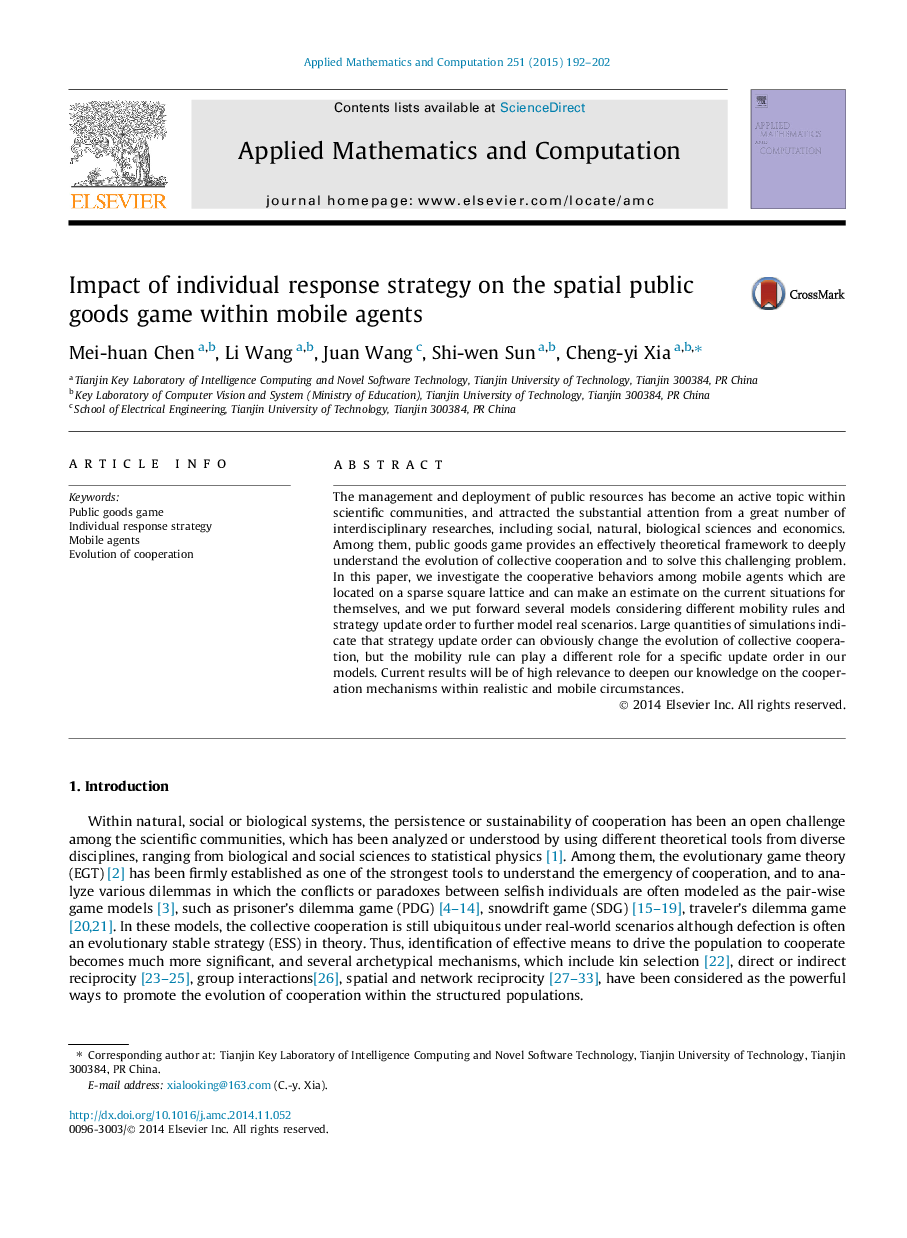| Article ID | Journal | Published Year | Pages | File Type |
|---|---|---|---|---|
| 4626998 | Applied Mathematics and Computation | 2015 | 11 Pages |
The management and deployment of public resources has become an active topic within scientific communities, and attracted the substantial attention from a great number of interdisciplinary researches, including social, natural, biological sciences and economics. Among them, public goods game provides an effectively theoretical framework to deeply understand the evolution of collective cooperation and to solve this challenging problem. In this paper, we investigate the cooperative behaviors among mobile agents which are located on a sparse square lattice and can make an estimate on the current situations for themselves, and we put forward several models considering different mobility rules and strategy update order to further model real scenarios. Large quantities of simulations indicate that strategy update order can obviously change the evolution of collective cooperation, but the mobility rule can play a different role for a specific update order in our models. Current results will be of high relevance to deepen our knowledge on the cooperation mechanisms within realistic and mobile circumstances.
